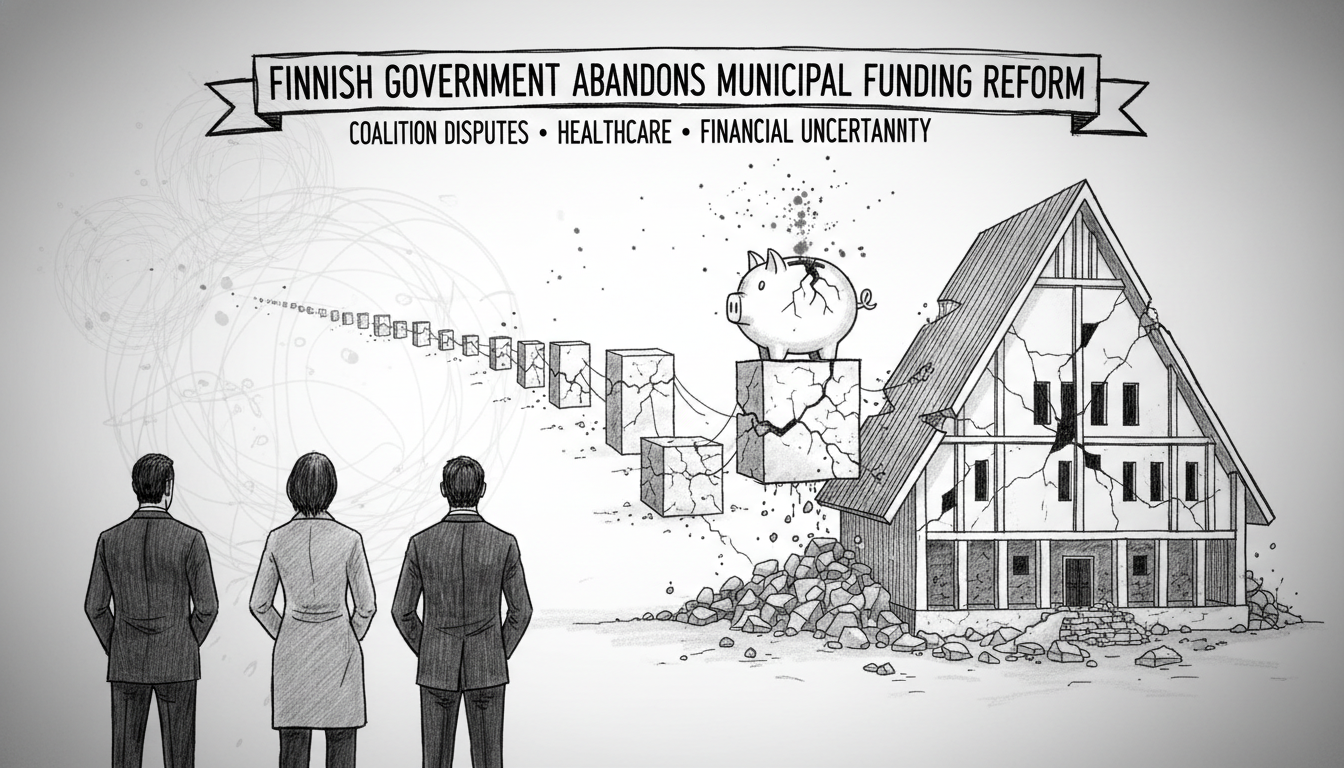Finland's government has abandoned plans to reform municipal funding systems during its current term. Minister of Local Government Anna-Kaisa Ikonen announced the decision, citing irreconcilable differences among coalition parties. The reform would have restructured how state funds are distributed to Finland's 309 municipalities.
The collapse represents a major setback for municipal finances nationwide. The proposed overhaul aimed to address long-standing inequalities in how state support is allocated to local governments. Minister Ikonen expressed disappointment, calling the reform essential for municipal sustainability.
Political sources identify healthcare equalization payments, known as 'sote-erät,' as the primary stumbling block. These special adjustments were created to balance financial impacts from Finland's previous healthcare reform. The Swedish People's Party (RKP) strongly opposed removing these payments, while other coalition members viewed them as outdated burdens.
RKP chairman Anders Adlercreutz expressed surprise at the timing of the decision. He stated his party had proposed multiple compromise solutions throughout autumn negotiations. Adlercreutz maintained that healthcare equalization payments were promised as permanent arrangements, not temporary measures. He warned that removing them would disproportionately affect municipalities in Northern and Eastern Finland.
The minister's announcement comes despite approximately 1.5 years remaining in the government's term. Political observers note this failure raises questions about the coalition's ability to implement complex reforms. The funding system will now remain unchanged until at least the next parliamentary term.
Center Party MP Petri Honkonen condemned the government's failure as demonstrating operational incompetence. He warned that many municipalities face worsening financial crises without the needed reform. Honkonen highlighted how current funding distribution creates arbitrary advantages and disadvantages.
He provided concrete examples of the system's inequities. Tampere and Jyväskylä struggle with substantial deficits due to insufficient state funding, while Kauniainen and Espoo receive disproportionately large allocations. Some smaller municipalities even face the unusual situation of paying negative state contributions back to the government.
The funding reform's collapse leaves Finland's municipal sector facing continued uncertainty. Municipalities must now navigate existing financial challenges without the promised systematic improvements. The outcome particularly affects smaller communities already experiencing service reductions and budgetary pressures.
This development reflects broader challenges in Finnish coalition politics. The government's inability to reach consensus on municipal funding suggests deeper divisions on fiscal policy. The issue now passes to the next government, ensuring it will remain a central topic in future political debates.

